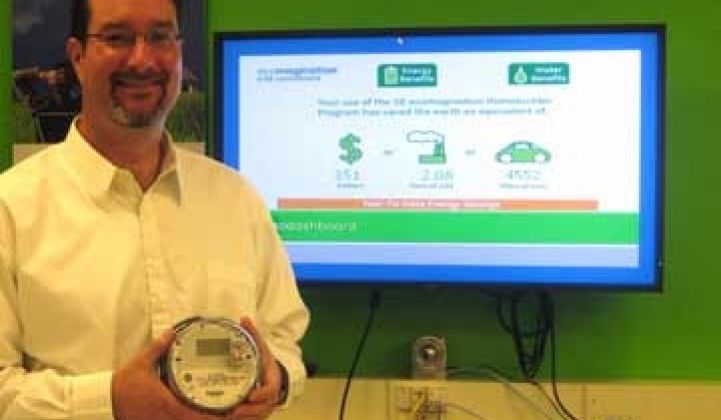As consumers start to reserve the Leaf, Nissan's all-electric sedan, the car maker is teaming up with General Electric to research the technology needed to make electric vehicles a part of the automobile landscape without overwhelming the power grid.
The two corporations signed a three-year memorandum of understanding to examine what's needed in the home, in the car, and on the grid to bring EVs to market. (Meanwhile, Better Place unveiled its swapping station for taxis today.)
There are two key areas of collaboration. The first involves integrating EVs with homes and buildings and the second focuses on how charging the car will affect the larger electrical grid.
Matt Nielsen, the lead GE scientist working on the smart charging collaboration, outlined in a blog post some of the immediate challenges that he sees.
In the home, Nielsen questions whether current electrical wiring standards will even support vehicle charging, and if they don't, how long will it take to get it right. He also is asking basic questions like, “What about people who don't have a garage?”
For those who don't, Nielsen wonders whether charging stations will be widely available. There is some discussion of the electricity used to power EVs being billed at a different rate than regular electric consumption for the household, but without a smart meter that could detect the difference, is it even a possibility?
At a recent event put on by Agrion LLC to address EV technology and vehicle-to-grid solutions, utilities were conspicuously absent from the panel, suggesting that the answers to the latter questions might not be answered before the Leaf hits the roadway.
However, Nielsen, for one, is confident that utilities are on board to bring EVs successfully on the grid in the near future. “The good news is that the electrified transportation community has recognized these issues and is proactively developing solutions,” he wrote on his blog. “Many of the utilities that I have spoken with have active programs to make sure their networks and systems are ready for electric vehicles and that they can provide a great experience for the customer.”
As Nissan and GE identify problems, they will identify projects they can partner on to find solutions. Much of the research will be done at GE's global research headquarters in Niskayuna, N.Y.
PV, EV, & Storage

GE and Nissan Team Up to Tackle Vehicle-to-Grid Issues
Nissan and GE collaborate to create solutions for bringing EVs onto the grid (and into the home).

GE and Nissan Team Up to Tackle Vehicle-to-Grid Issues
-
41Where Will DOE’s Loan Program Make the Next Climate Tech Investments?
-
15What the Frack Is Happening With Natural Gas Prices?
-
9With an Energy Crisis Brewing, No Peak in Sight for Emissions


